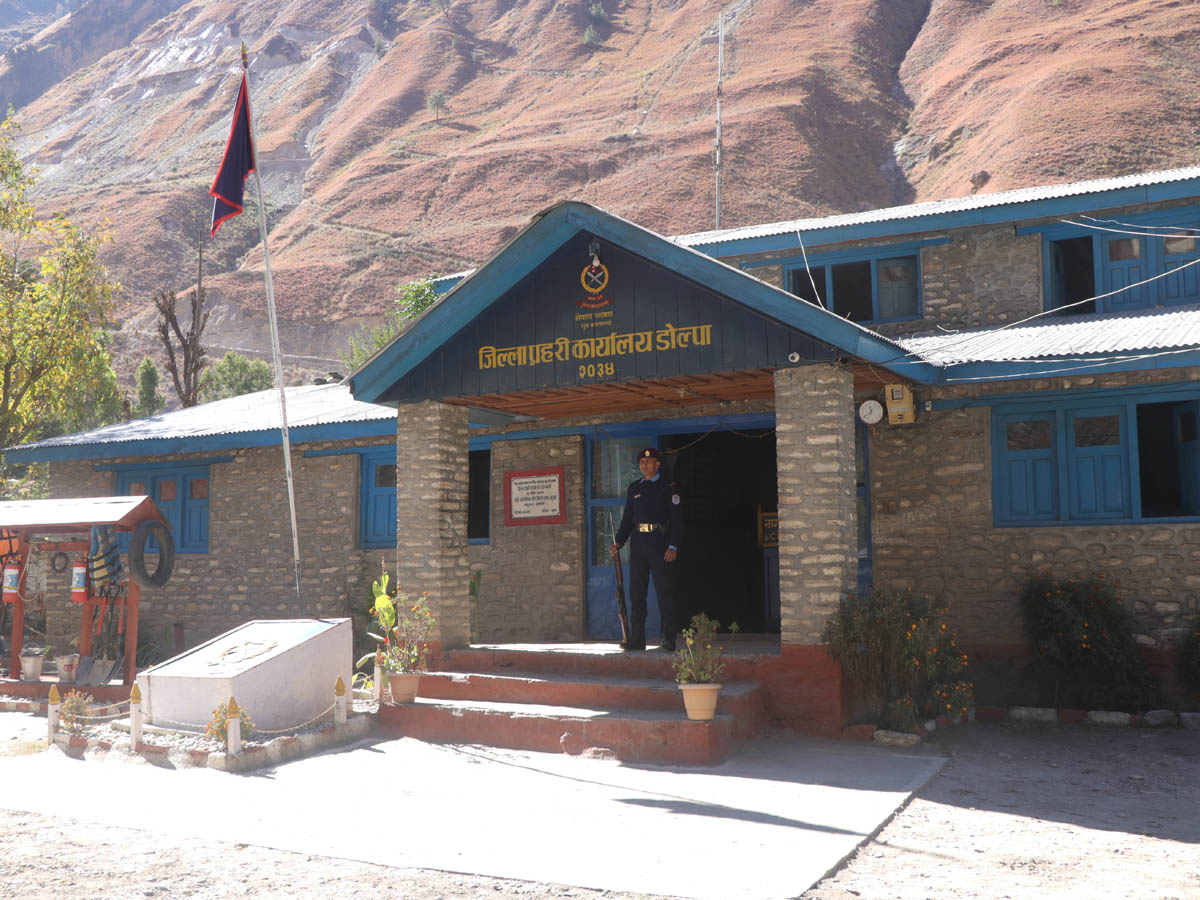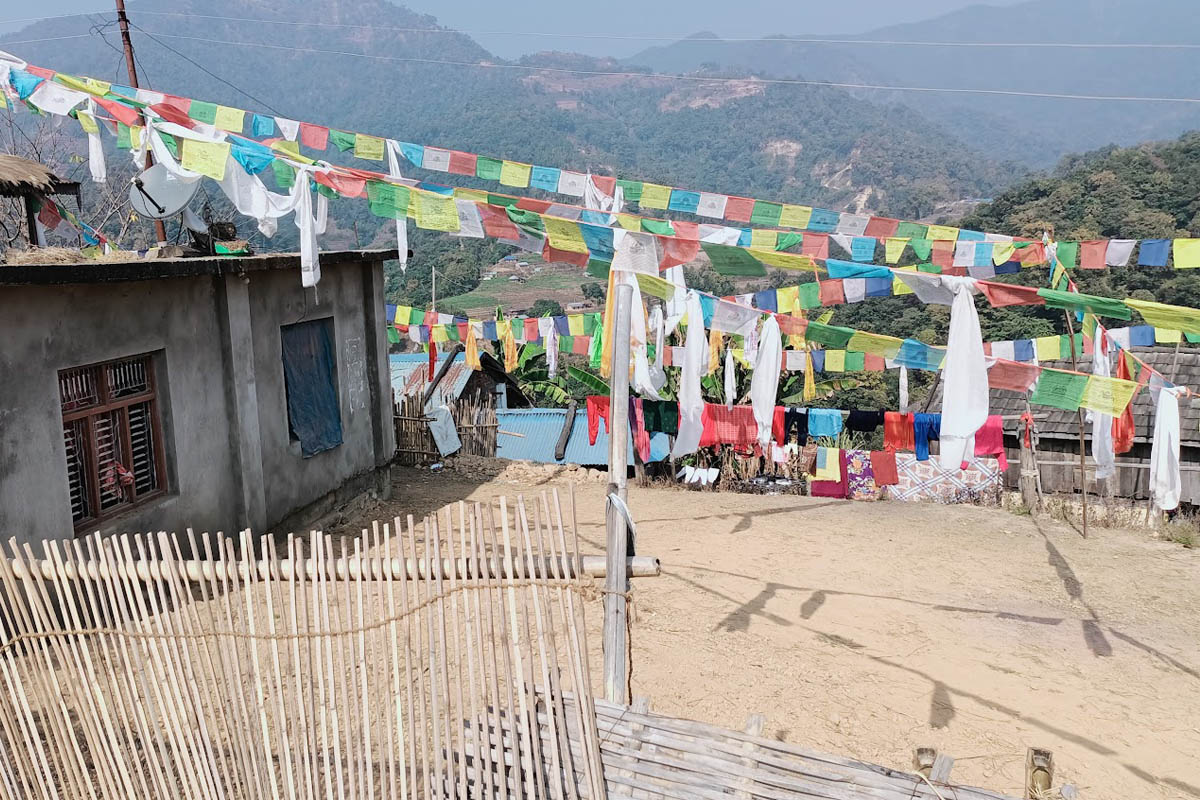As with other days, Ritika was on the lookout for a customer on May 15, 2024. If she found a customer, she made some money; if not, she had no money. So, when there were customers, she stayed inside the massage parlor; when there were none, she looked for them.
 That day, a group of people entered her spa. She couldn't decide whether they were customers or not and looked on in astonishment. A woman from the group came up to her and asked how old she was. Trained by the spa owner to inflate her age when asked, she responded, "17." By now, she understood that the people were officials there for inspection and monitoring. The monitoring team asked her to go with them, which she refused, but they insisted. “They told me that nothing bad would happen to me and that I could return after a couple of hours. So, I came with them,” said Ritika, who is now in a protection shelter run by an NGO that provides shelter and protection to women who have been victims of human trafficking and violence.
That day, a group of people entered her spa. She couldn't decide whether they were customers or not and looked on in astonishment. A woman from the group came up to her and asked how old she was. Trained by the spa owner to inflate her age when asked, she responded, "17." By now, she understood that the people were officials there for inspection and monitoring. The monitoring team asked her to go with them, which she refused, but they insisted. “They told me that nothing bad would happen to me and that I could return after a couple of hours. So, I came with them,” said Ritika, who is now in a protection shelter run by an NGO that provides shelter and protection to women who have been victims of human trafficking and violence.
That day, a team from the District Police Office Kaski, Pokhara Metropolitan City, and Shakti Samuha rescued six girls from different spas in Lakeside – two from Center Point Spa, two from New Vision Spa, one from Himalaya Spa, and one from Paramount Spa. The Act Relating to Children (2018) prohibits employing children below 18 in hazardous work. Therefore, the authorities rescued children below 18 that day.
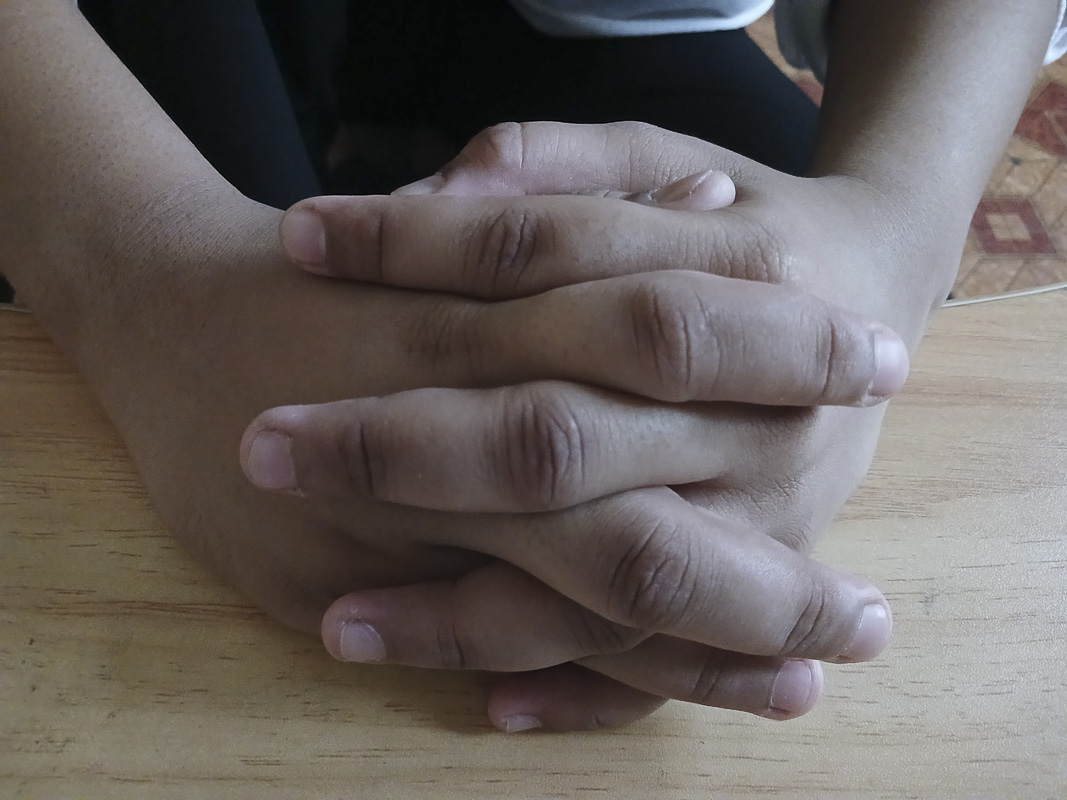
Ritika could not go home after two hours. “I was really angry for the first few days. I felt like running away from this safe home,” said Ritika. But now she has changed her mind after participating in various interactions and counseling sessions. She now does not want to return to the spa even when she turns 18 because of the abuse that takes place there. A customer once tried to force himself on her, however she managed to escape. “If I see this man, I will recognize him at once. I don’t know his name, but he was forcing himself on me,” she said. “I ran out through the door and started crying. My proprietor asked me why I was crying, but I told her nothing.”
“As I was massaging him he asked me to massage his private parts. He spoke in Hindi and I told him such things do not happen here, in Hindi itself.”
Ritika, who hails from a village about 70 kilometers away from Pokhara, had not spoken about this incident with anybody before. But she opened up with us. “I feel that I must tell someone about it now.”
She said that she tried to smack him but he held her hand and as she was trying to escape through the door the man held her back by pulling her hair. “He held me by my hair and started to do ‘negative things’ on me. He grabbed me on my chest and when I tried to scream he put his hand on my mouth, almost smothering me. Somehow, I managed to escape,” she narrated the story.
The man came to the spa again and asked Ritika to give him a massage, which she sternly declined. “Then he said he did not need a massage. He got angry and went away,” Ritika said.
Most of the people who visit spas and massage parlors to get rid of mental and physical exhaustion through a head-to-toe massage are middle-aged men. And it is usually women who provide them services. But inside the spas, several immoral and unlawful activities take place. Sexual activities – such as body-to-body massage, massage on genitals, and masturbation – are common in many of the spas where the customers have a ‘happy ending.’ These activities do not only constitute sexual violence and abuse but also human trafficking. Human Trafficking and Transportation (Control) Act 2007 defines the act of involving people in prostitution, for the purpose of gains or without, as an act of human trafficking. Some women who spoke to us admitted having sexual intercourse with the customers out of compulsion. Nita (name changed) is one of them.
We met Nita on April 4, 2024, one-and-a-half months before Ritika and other children were rescued. She had come to Pokhara after a day-long bus ride one-and-a-half years ago. She was promised a job in a parlor by one of her friends however, her friend took her to a spa instead of a parlor as had been promised. When Nita started working in a spa she was just 16 ½ years old. On May 15, when the police inspected that spa, she was not rescued as she was already 18 by that time.
In the initial days, working in a spa was a moral dilemma for her. She found it awkward to massage a male body, but due to her family's poor financial condition, she was compelled to do it. “I was pretty shy and scared; it felt strange to touch the bodies of strangers. I felt I was being pushed into indecent work,” she recalls. The first six months passed this way, and she did not offer services other than massage, even when customers sought ‘extra service,’ a term she did not initially understand but soon learned from friends. Lured by the prospect of additional income, she eventually chose to keep her customers happy. “Six months after I started working in the spa, I began to give my customers a ‘happy ending.’”
Nita’s preferences have now changed. She looks for customers who seek ‘extra service.’ “It seems like I have become used to it now. There is no regret either. I ask the customer if they want ‘extra service.’” Nita, whose regular monthly salary is Rs 11,000, makes as much as Rs 40,000 through ‘extra service.’
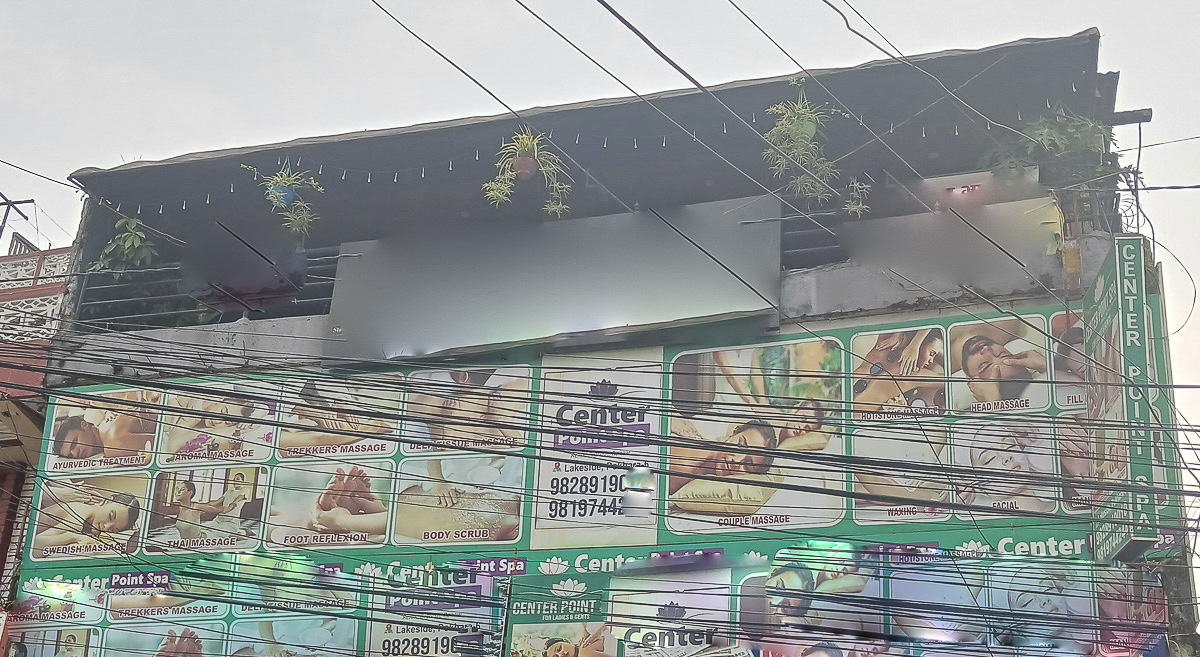
Around a month before we met Nita, we had met Prabita (name changed) whose family's financial condition was as bad as Nita’s. She first worked in a spa in 2018 while not yet 18, got married during the Covid-19 pandemic and had a baby girl. Spurned by her husband, she decided to leave her daughter with her mother and head to Pokhara. “I didn’t want to leave my daughter but I had no option as I was not being able to manage even the basic household expenses,” she laments. After a day-long bus ride from her hometown she reached Pokhara. Prabita says that in her spa customers ask for not only a ‘happy ending’ but also body-to-body massage service. “Some directly propose sex,” she said. “Body to body massage is when the customer and we get naked, and massage oil on their body through our body. But there is no sex involved,” she explained.
It all began while she was still an adolescent girl in 2018. A few days after she started to work in a spa, a customer proposed that she give him a ‘happy ending’ massage but she declined. One day she was penniless which compelled her to break her resilience for Rs 2,500. “I was in dire need of money. So, I accepted the customer’s offer of Rs 2,500 as it would not only make him happy but also fulfill my financial need,” Prabita recalled.
Parita, who is just 18, was lured into this world by her friend who offered her parlor training but took her to a spa. She could not say ‘no’ to her friend and go back home and so began to work in the spa. The first few days were scary. “When it came to putting my hands on a man's body I trembled. I would be scared to be alone in a room with a stranger,” she recalled the initial days.
Customers usually demand a ‘happy ending’ now and those who do so are mostly Indian customers. But she clarified that she has not provided any ‘happy ending’ service so far to any customer.
Nepal’s law prohibits involving children below 18 in the adult entertainment sector because it is considered a hazardous sector. Guidelines for the prevention of sexual harassment against working women at workplaces like dance restaurants, dance bars, etc. have clearly stated that “establishing sexual relation with someone by offering or not offering economic inducement or by forcing someone to do so shall be considered as sexual exploitation.” Nepal’s law recognizes even the sexual relation on consent between two people below 18 as rape. The National Criminal Code (2017) has a provision of 10-12 years of imprisonment in case of sexual relation with a person who is 16 and above and below 18. Section 66 (3) of Act Relating to Children defines following acts against a child as sexual abuse of a child: To touch, kiss, hold sensitive parts of body of him or her, to embrace him or her with sexual intent or cause him or her to touch or hold sensitive parts of own body or body of another person, to use, or cause to use, him or her for stimulating sexual lust or sexual excitement, to use, or cause to use, him or her for the purpose of sexual gratification, to engage, or cause to engage, in child sexual exploitation, to use, or cause to use, him or her with the intent of providing sexual services, to use, or cause to use, him or her with the intent of engaging in sexual abuse, and to use him or her in prostitution or other sexual work. Those who commit any of these crimes are liable to three years of imprisonment and a fine of up to Rs 75,000.
Mohan Kumar Thapa, Superintendent of Police and Chief of District Police Office in Kaski, says action will be taken against those putting adolescent girls at work on charge of offense against children. According to him, he is collecting the documents that identify and specify the age of the girls and said that a case will be filed after the investigation is over. “Depending on whether it is related to sexual abuse or human trafficking and forceful prostitution, a case will be registered accordingly,” he said.
Locked up and sexually abused
Bipana (name changed) was one of the girls we met who was held hostage by a spa owner and had been raped continuously for two months. Bipana was still a child then. She ran away from bondage and reached the District Police Office in Kaski for help. She was later housed in a safe home. Later she left the country for foreign employment and the spa owner is in judicial custody. According to her, she used to work in a spa in Kathmandu before she came to Pokhara, a city she loved visiting. She met the perpetrator (the owner) as she was looking for a job. The perpetrator offered her a job with a monthly salary of Rs 30,000, which she accepted. While working in that spa, she used to not only give massages to customers but also work at the front desk. But she was not paid the salary that was agreed upon and instead the owner started to exploit her. “I was getting mentally tired of everything. The owner would not allow me to go out. I had to be in the spa all the time. I worked for two months but he did not pay me any salary. Instead, he would take money from my purse,” she said.
Lax monitoring
Nepal Police, local administration and other concerned authorities are all aware about the spas in Pokhara employing children and indulging the minors in sexual activities but no efforts have been taken to control these activities. According to the guidelines, the Chief District Officer (CDO) and the committee led by him/her are responsible for carrying out monitoring tasks. The District Administration Office (DAO) Kaski appears to be more focused on dohori song restaurants and dance bars, two of the most talked about ‘entertainment sectors’ in Nepal. Ganga Bahadur Chhetri, Deputy CDO of Kaski, admitted in a conversation on April 9, 2024 that there has been no monitoring of spas. “We monitor the night-time business sector but we have not really checked how the spas are being operated during the day time and whether they are registered with the government authorities, though we used to monitor them in the past.”
Right for Children is an NGO implementing programs targeting the entertainment sector. Under Prayas Project, it is working to expose the problems of the entertainment sector and to make their work dignified. The NGO, however, is not able to focus on spas. Pashupati Chaudhary, who works with Prayas Project, says: "Since we work with dohori song restaurants and dance bars we are aware about the issues in spas.” According to her, officials from the NGO do inspect the spas from time to time and so they know the issues related to spas. “Though we do visit spas for inspection at times it becomes difficult. The moment we start inquiring a bit the spa proprietors bar us entry,” she said.
Apparently, victims like Ritika were rescued on May 15, 2024, two months after we started collecting news about the illegal activities happening in spas. Then on May 24, 2024, five persons were rescued from Lakeside by the monitoring team – three from Nectar Eco Foot Spa and one each from Panjase Spa and Parlor and Namaste Wellness Spa, respectively. Sarita Paudel, chief of Gandaki Province office of Shakti Samuha, says the fact that a total of 11 children were rescued on two occasions from spas indicates there could be many more children working in the spas. “These incidents reveal that many children still work in spas as laborers. It is an irony that the guidelines prohibit the entry of children below 18 in spas but we have children working there,” she said.
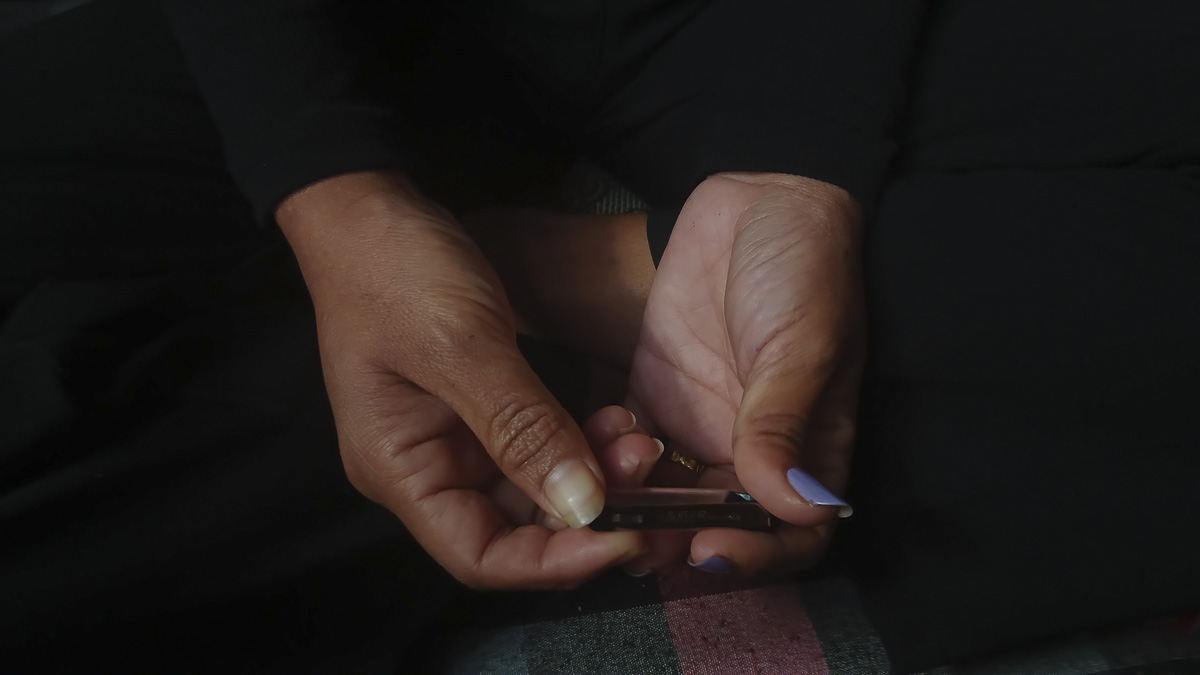
Two months before monitoring, we met Asmita (name changed) in April at Lakeside. Though she was just 16 years old she had been working in a spa as the spa had never been monitored. Legal experts say that there is no separate law to control abuse on working women in spas and other sectors. “The guidelines related to working women speak about controlling sexual abuse,” said Kunjani Pariyar Pyasi, an advocate. “There is a provision of the CDO leading a committee, monitoring, recommending actions and even closure.” “But they are only guidelines, which is why the provisions there have not been implemented,” she said. According to her, exploitation of women in the workplace has been continuing because of weak monitoring. She further said that women working in the entertainment sector have not been provided with wages and facilities as determined by the Labor Act.
Out of schools, into the spas
The girls we spoke to, including Ritika, have not even passed high school. Ritika’s parents wanted her to study but since her family’s financial condition was very weak, she decided to work to support her family which led to her coming to Pokhara. After coming to Pokhara, she first started to work in a hotel for a monthly salary of Rs 10,000. She then met a friend who told her that she would earn much more in spas. She, thus, shifted to a spa where she was paid a monthly salary of Rs 12,000.
Now, however, Ritika wants to resume her studies. “They have offered me support and encouraged me to study. I will go back to school,” she said, pointing to the staff of the organization (NGO) providing her shelter.
Nita quit school after eighth grade and started doing household chores. One day, a friend living in Pokhara offered her a job in a parlor. Nita, whose parents are wage laborers, realized her family's financial condition was poor and decided to come to Pokhara. “Who would give a job in Pokhara to someone who has studied only up to grade eight and who does not even have a citizenship card?” she said. “So, when I was told I would be paid Rs 12,000 per month, I said yes and started working in spas doing the same work (meaning massaging and beyond).”
Asmita, who studied up to grade 10, came to Pokhara to complete her school education. However, she had to work nine hours a day in a spa, leaving her no time for school. Nita, who began working in a spa at the age of 16 and a half, is only a ninth grader. She chose to work to help her family, which relies on wage labor for sustenance. “I quit school so that I could support my parents with my income,” she said.
Spa operators themselves accept perversions
Ritika has seen how the spa owners themselves lure customers by saying that sexual activities are allowed inside the spas. “A man came to the spa once and said, ‘Your owner has said, pay and if she agrees to give ‘extra service,’ fine, but don’t force her into it if she does not agree to,’” Ritika quoted the customer as saying. “But then I said I wouldn’t do it.” Many customers sought ‘extra service’ by offering to pay more, Ritika said.
There is no exact data regarding the number of spas operating in Pokhara. Some businesses are registered as ‘Spa Pvt Ltd,’ while others have approval for spa services under the cottage industry category. However, since these businesses were registered for other purposes, the Small and Cottage Industry Department does not have precise data. The Spa and Wellness Association of Nepal estimates that around 100 spas are in operation. Ram Kumar Shrestha, the president of the association, insists that spas should adhere to the norm of not employing underage girls for such jobs. Although he hears negative comments about spa businesses, he cannot question the intentions of spa operators without evidence. “I have heard that some (three to four) spas allow illegal (sexual) activities inside them,” he said. “But I cannot question them simply based on hearsay.”
According to him, evidence of spas allowing sexual activities is needed, but none has been found so far. Monitoring of spa activities was done before the Covid-19 pandemic, but no such monitoring has occurred since then. Ganga Pun, the secretary at the Association, says that problems have arisen because the government has not established criteria and standards for operating spas. “They rent a room or two and do whatever they want inside. This is the situation today,” she said. “Many even provide ‘happy ending’ services.” Pun, who runs Barahi Spa, suggests that the government should allow spas to operate even in a single room and only permit those skilled in sauna and steam services to run a spa. She also notes that spa operators often force workers into sexual services. “In many cases, spa owners themselves involve the workers in sexual activities, but they act smart and are dominant.”
Smriti Paudel, the proprietor of Paramount Spa, claims that she has been in this business for the last 11 years but has never violated laws or rules. She believes that those who operate from their own homes and allow illegal activities inside closed doors have defamed the entire spa sector. “Go to every lane and gully, and you will see illegal activities happening behind closed doors, but outside, they have the boards of spas,” she said. “Because of them, many others who are working genuinely have earned a bad name.”
Exploitation rampant in spas
- Sarita Paudel
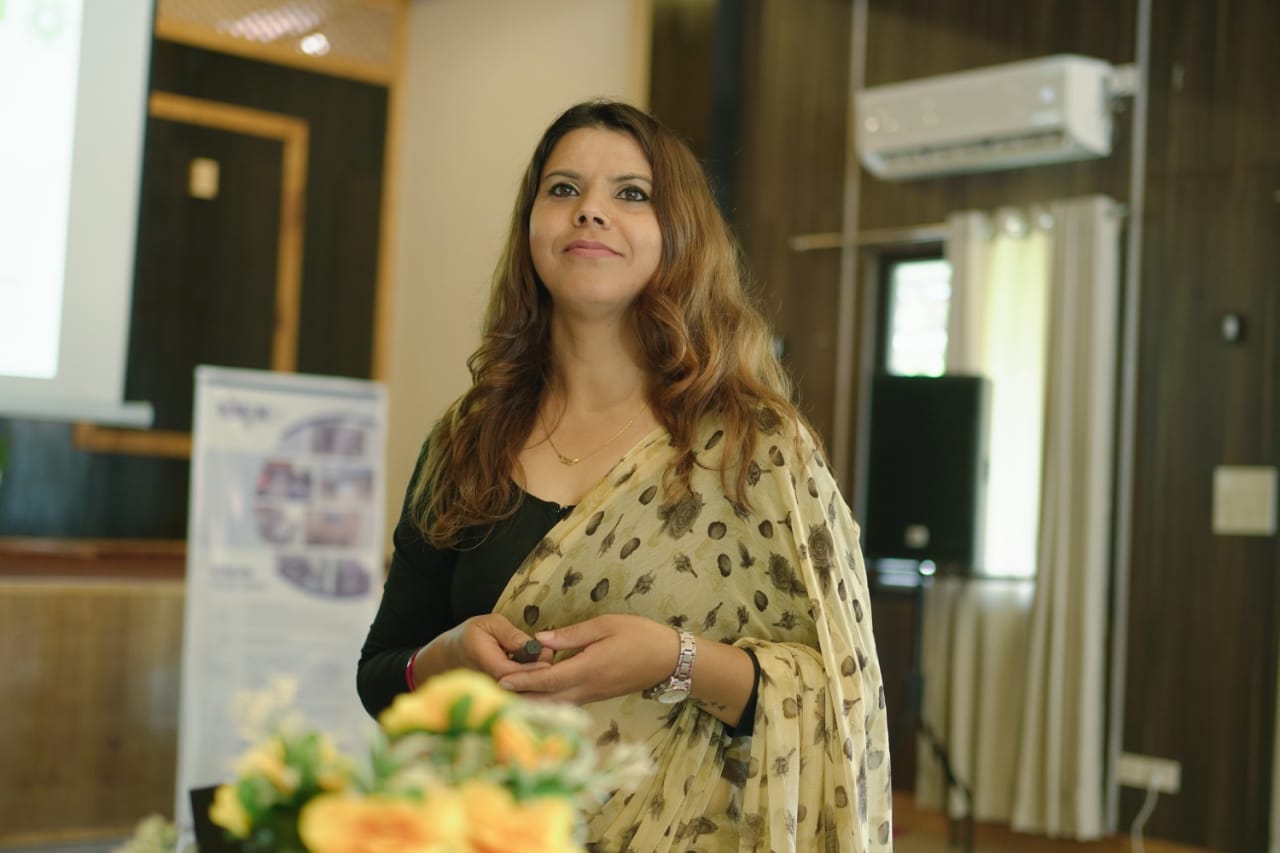
On May 15, 2024, a team led by the District Police Office, Kaski and Pokhara Metropolitan City inspected five spas and found six girls under 18 working in four of them. We rescued them. When the same team monitored three spas in the Lakeside area on May 24, 2024, we rescued five more individuals. This shows that many more children are being employed in spas, despite clear prohibitions in the guidelines.
If the District Administration Office, local government, and police become active, conduct regular monitoring and inspections, and take action against those violating the guidelines, the practice of employing children in spas would be discouraged. As someone who has observed the entertainment sector in Kaski for the last seven years, I can say that there is significant exploitation of women in this sector. We learned from the working sisters that they do not even receive the minimum wage determined by the government of Nepal. There is both labor and sexual exploitation in this sector.
When the girls start working, they initially know nothing about sexual exploitation. Only when customers demand extra services do they become puzzled. They then ask their seniors about it, and when experienced colleagues brief them, they face a rude awakening. By then, it is usually too late for them to leave their jobs, and the necessity to earn keeps them engaged in the sector.
We meet the family members of the rescued girls, and when we talk to them, we find that they are unaware of the nature of their daughters' work. During counseling sessions, many sisters admit that they were initially offered work in parlors, not spas, and only learned they were in spas after working there for a few days or months. They also express a lack of confidence to leave the job and work in another field. As we have found, most children who end up in this sector come from wage labor backgrounds, poor families, or those with family conflicts, or from Dalit and Janajati backgrounds. Many of them sought jobs due to their poor family backgrounds and ended up in spas.
(Based on a conversation with Paudel, who is the provincial chief of Shakti Samuha, Gandaki Province chapter)
‘Spas should be declared as hazardous zones’
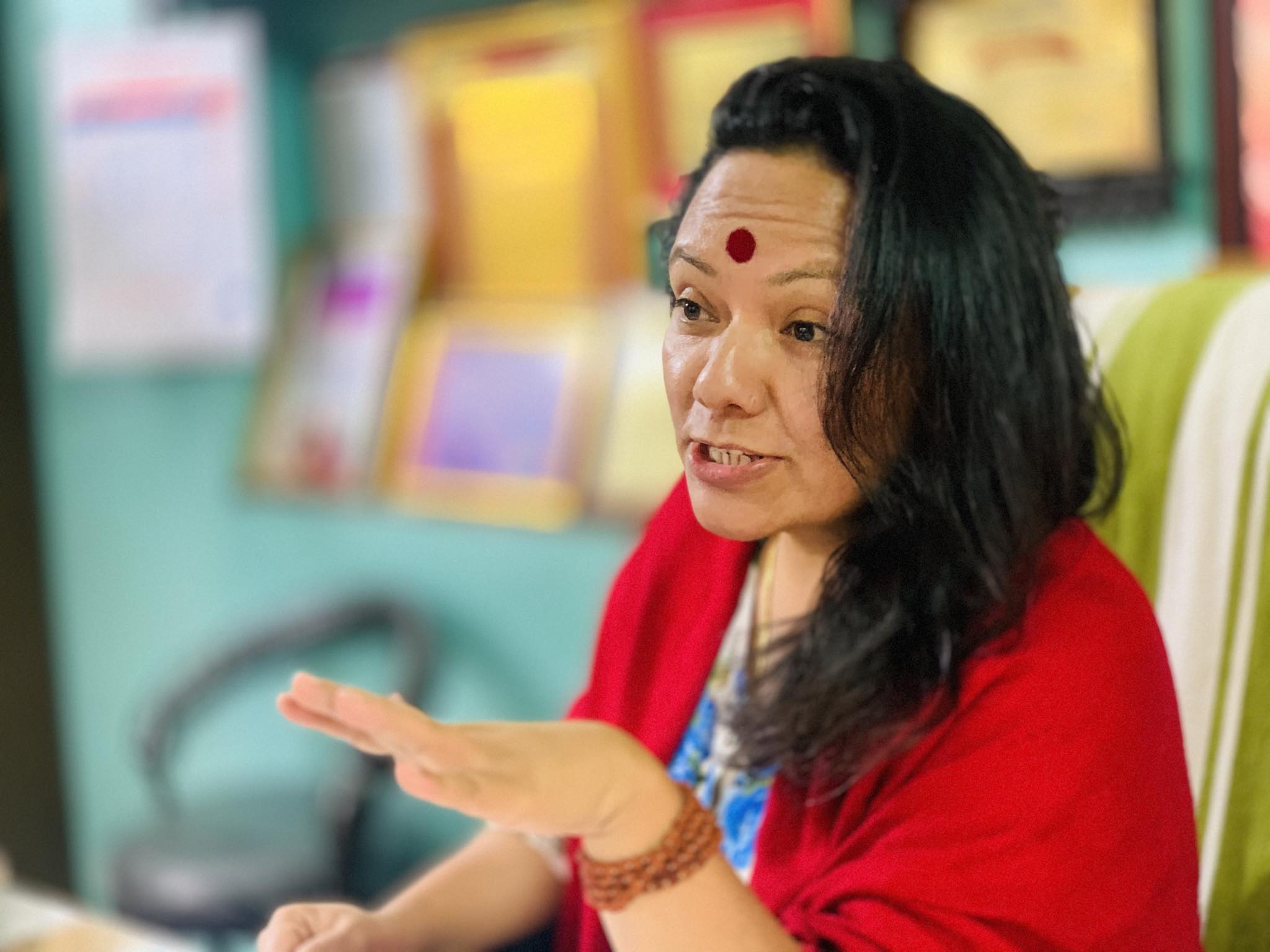
Edited excerpts of the interview with Menuka Thapa, the founder of Rakshya Nepal, on abuse and exploitation faced by women working in spas, massage centres, hotels and restaurants and the ways to minimize such exploitation:
What is the status of violence on women working in the entertainment sector in Nepal, particularly in cities like Pokhara and Kathmandu?
I have always wondered who named this the "entertainment sector" and for whose benefit. This is actually a hazardous sector. Girls and women work here out of compulsion; they are poor, in pain, and face exploitation. Only those who exploit them or profit from this sector might be happy. How is it possible to derive pleasure from the tears and pain of others? I do not call it an entertainment sector; it is a hazardous sector and should be recognized as such. The situation for women working in this sector is dire. They have been demanding a sustainable and dignified option from the state. Whether in Kathmandu, Pokhara, or any other city in Nepal, women in this sector face extreme financial and sexual exploitation. They have never received the Rs 13,000 monthly salary set by the government as the minimum wage. Additionally, employers often make them work without providing contracts or appointment letters, which is against the law and the constitution.
Why do girls and women choose to join this sector despite the risks of facing sexual abuse and being forced into sexual activities?
The 2000s was a period of internal conflict in Nepal. Victims of the conflict and those displaced fled their homes and villages, coming to the cities to save their lives. Women were found working in this risky sector to support themselves and their families. They entered this sector out of necessity. More recently, individuals affected by the 2015 earthquakes and the Covid-19 pandemic have also turned to this sector, as their concerns were not adequately addressed by the state. Additionally, although the law designates 20 as the age of marriage, many adolescent girls marry before they reach this age. These early marriages often lead to conflicts with their spouses, resulting in divorce, sometimes while the women are already mothers of two or three children. Unable to abandon their children, these women come to the city and take any available job to support their families.
Why does the government, despite being fully aware of the labor and sexual exploitation occurring in the entertainment sector, fail to conduct proper monitoring and inspections?
This is mainly because the government has not prioritized this serious issue. Additionally, those running businesses in this sector often enjoy political protection. Although a monitoring and action committee has been formed to address this sector, it does not appear to be functioning effectively. The National Human Rights Commission Report (2018) clearly states that those working in the entertainment sector face labor exploitation, are forced to provide sexual services against their will, work without contracts or appointment letters, are denied the minimum wage set by the government, and lack fundamental facilities. They often work under fear and coercion from employers. Yet, the government continues to ignore these issues.
What measures do you think should be taken to address the issues faced by women in this hazardous sector?
The day the government officially declares this so-called entertainment sector as hazardous and takes the situation of women and children seriously, the violence and exploitation we have heard about will end. The state, with its resources and power, can solve this problem swiftly if it chooses to do so. Until the state shows willpower and becomes proactive, the problem will persist. Women and children working in this so-called entertainment sector are often targeted by human traffickers. Both the government and concerned stakeholders need to address this issue with urgency. The Trafficking in Persons Report (2023) by the US State Department shows that about 17 percent of children in Kathmandu are involved in the entertainment sector, and 62 percent of adult women have been in this sector since childhood. Therefore, the state should declare this sector hazardous without delay.
(This investigative report was prepared through the NIMJN fellowship supported by the Australian Aid. All rights and responsibilities are reserved with the author and publisher.)
Read our guidelines for Republishing this story here.

